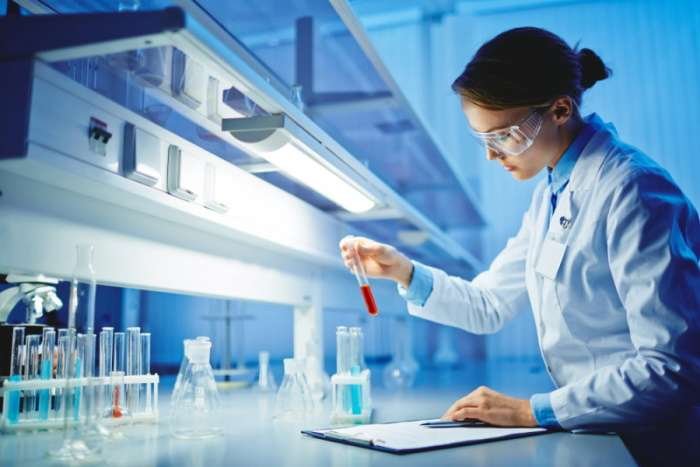Importance of Laboratory Tests Across Different Sectors
Laboratory tests and analysis play a crucial role in maintaining the safety and quality standards across various sectors, including healthcare, environmental services, food and beverage, and pharmaceuticals. Each sector has unique requirements that necessitate specific testing protocols to ensure compliance and risk management.
In the healthcare sector, laboratory analysis is essential for diagnosing diseases, monitoring patient health, and guiding treatment decisions. Common tests, such as blood tests, biopsies, and urinalysis, provide critical information that healthcare professionals rely on to make informed clinical decisions. The accuracy of these tests can directly impact patient outcomes, underscoring the significance of rigorous laboratory practices and quality control.
Environmental services also heavily depend on laboratory tests to monitor and protect public health and the environment. Water quality testing, soil analysis, and air pollution assessments help identify harmful contaminants that can affect ecosystems and human health. By employing advanced analytical techniques, environmental laboratories can detect pollutants and assess compliance with regulations, thereby contributing to sustainable practices and prevention of environmental hazards.
The food and beverage industry prioritizes safety and quality through rigorous laboratory testing procedures. Microbiological tests, chemical analyses, and nutritional assessments ensure that food products meet stringent health regulations and consumer standards. The proactive testing not only helps prevent foodborne illnesses but also assures that food products are safe for consumption, thus preserving public trust and brand integrity.
Lastly, the pharmaceutical sector relies on laboratory tests to guarantee the efficacy and safety of drugs before they reach the market. Clinical trials, stability testing, and active ingredient analysis are critical in the drug development process. This stringent testing regimen ensures compliance with regulatory standards, safeguarding public health while fostering innovation in medicine.
In conclusion, the significance of laboratory tests across different sectors cannot be overstated. These analyses are vital for compliance, risk prevention, and maintaining high standards of safety and quality, ultimately safeguarding both public health and the environment.
Key Laboratory Tests by Sector
Laboratory tests play a crucial role in various sectors, ensuring safety, compliance, and health standards. In the healthcare industry, several key laboratory tests are utilized to evaluate patient health and diagnose conditions. Blood panels, for instance, assess several health indicators including complete blood count (CBC), metabolic panel, and lipid profiles. These panels provide essential insights into the body’s functioning and can indicate potential health issues. Additionally, microbial cultures are performed to detect infections caused by bacteria and fungi, guiding treatment decisions effectively. Genetic testing also holds significant importance in healthcare, as it can identify hereditary diseases and predispositions, allowing for preventive measures and personalized medicine.
Environmental services rely heavily on laboratory testing to monitor and manage contamination risks. Soil and water testing are vital in assessing environmental safety and public health. Soil tests can identify pollutants and nutrients that affect plant growth, while water testing is crucial for detecting contaminants such as heavy metals or pathogens. These analyses enable effective strategies for pollution control and environmental conservation, thereby protecting public health.
In the food and beverage sector, safety and quality control are paramount. Pathogen detection tests, such as those for Salmonella or E. coli, are essential to prevent foodborne illnesses. Furthermore, nutritional analysis evaluates the ingredient content to meet regulatory standards and assist consumers in making informed dietary choices. This rigorous testing ensures products are safe for consumption and comply with food safety regulations.
Lastly, in the pharmaceutical industry, rigorous laboratory testing ensures the safety and efficacy of medications. Stability tests determine how a drug will behave over time under various conditions, while potency tests confirm the active ingredients perform as expected. Assessments of purity are equally important to identify any contaminants that might affect drug quality. These tests underscore the industry’s commitment to producing safe and effective pharmaceuticals for public health.
Essential Standards for Laboratory Testing and Analysis
Laboratory testing and analysis play a pivotal role in various sectors, including healthcare, environmental monitoring, and food safety. To ensure the accuracy and reliability of test results, numerous essential standards are established by regulatory agencies such as the Food and Drug Administration (FDA), the Environmental Protection Agency (EPA), and the International Organization for Standardization (ISO). These organizations outline guidelines that laboratories must adhere to, significantly affecting their operations and methodologies.
The FDA maintains stringent regulations focused on clinical laboratories to ensure that medical testing provides accurate and reliable results for healthcare applications. This encompasses compliance with the Clinical Laboratory Improvement Amendments (CLIA), which set standards for laboratory testing quality. Similarly, the EPA implements guidelines tailored for laboratories involved in environmental testing, ensuring that results accurately reflect the safety and quality of air, water, and soil. Compliance with these regulations is vital to maintain environmental integrity and public health.
ISO standards, particularly ISO 17025, provide a framework for quality management systems in laboratories, emphasizing the need for competent personnel, reliable equipment, and comprehensive procedures. Adhering to these standards contributes to a laboratory’s credibility, ultimately enhancing customer trust and satisfaction. These essential standards also mandate continuous monitoring and improvement, necessitating laboratories to stay updated with evolving regulations to maintain compliance and operational excellence.
Compliance with these standards not only protects laboratory integrity but also reinforces the validity of test results across various sectors. Laboratories must adopt a proactive approach in their operations, regularly reviewing the guidelines set forth by relevant regulatory bodies. This commitment to compliance ultimately fosters better research outcomes and informs public policy, highlighting the significant role that essential standards play in laboratory testing and analysis.
How Can We Assist You?
Would you like to learn more about our services? Feel free to contact us today!
If you’re interested in professional certification, we’d be happy to provide you with an excellent price offer.
Importance of Laboratory Tests Across Different Sectors
Laboratory tests and analysis play a crucial role in maintaining the safety and quality standards across various sectors, including healthcare, environmental services, food and beverage, and pharmaceuticals. Each sector has unique requirements that necessitate specific testing protocols to ensure compliance and risk management.
In the healthcare sector, laboratory analysis is essential for diagnosing diseases, monitoring patient health, and guiding treatment decisions. Common tests, such as blood tests, biopsies, and urinalysis, provide critical information that healthcare professionals rely on to make informed clinical decisions. The accuracy of these tests can directly impact patient outcomes, underscoring the significance of rigorous laboratory practices and quality control.
Environmental services also heavily depend on laboratory tests to monitor and protect public health and the environment. Water quality testing, soil analysis, and air pollution assessments help identify harmful contaminants that can affect ecosystems and human health. By employing advanced analytical techniques, environmental laboratories can detect pollutants and assess compliance with regulations, thereby contributing to sustainable practices and prevention of environmental hazards.
The food and beverage industry prioritizes safety and quality through rigorous laboratory testing procedures. Microbiological tests, chemical analyses, and nutritional assessments ensure that food products meet stringent health regulations and consumer standards. The proactive testing not only helps prevent foodborne illnesses but also assures that food products are safe for consumption, thus preserving public trust and brand integrity.
Lastly, the pharmaceutical sector relies on laboratory tests to guarantee the efficacy and safety of drugs before they reach the market. Clinical trials, stability testing, and active ingredient analysis are critical in the drug development process. This stringent testing regimen ensures compliance with regulatory standards, safeguarding public health while fostering innovation in medicine.
In conclusion, the significance of laboratory tests across different sectors cannot be overstated. These analyses are vital for compliance, risk prevention, and maintaining high standards of safety and quality, ultimately safeguarding both public health and the environment.
Key Laboratory Tests by Sector
Laboratory tests play a crucial role in various sectors, ensuring safety, compliance, and health standards. In the healthcare industry, several key laboratory tests are utilized to evaluate patient health and diagnose conditions. Blood panels, for instance, assess several health indicators including complete blood count (CBC), metabolic panel, and lipid profiles. These panels provide essential insights into the body’s functioning and can indicate potential health issues. Additionally, microbial cultures are performed to detect infections caused by bacteria and fungi, guiding treatment decisions effectively. Genetic testing also holds significant importance in healthcare, as it can identify hereditary diseases and predispositions, allowing for preventive measures and personalized medicine.
Environmental services rely heavily on laboratory testing to monitor and manage contamination risks. Soil and water testing are vital in assessing environmental safety and public health. Soil tests can identify pollutants and nutrients that affect plant growth, while water testing is crucial for detecting contaminants such as heavy metals or pathogens. These analyses enable effective strategies for pollution control and environmental conservation, thereby protecting public health.
In the food and beverage sector, safety and quality control are paramount. Pathogen detection tests, such as those for Salmonella or E. coli, are essential to prevent foodborne illnesses. Furthermore, nutritional analysis evaluates the ingredient content to meet regulatory standards and assist consumers in making informed dietary choices. This rigorous testing ensures products are safe for consumption and comply with food safety regulations.
Lastly, in the pharmaceutical industry, rigorous laboratory testing ensures the safety and efficacy of medications. Stability tests determine how a drug will behave over time under various conditions, while potency tests confirm the active ingredients perform as expected. Assessments of purity are equally important to identify any contaminants that might affect drug quality. These tests underscore the industry’s commitment to producing safe and effective pharmaceuticals for public health.
Essential Standards for Laboratory Testing and Analysis
Laboratory testing and analysis play a pivotal role in various sectors, including healthcare, environmental monitoring, and food safety. To ensure the accuracy and reliability of test results, numerous essential standards are established by regulatory agencies such as the Food and Drug Administration (FDA), the Environmental Protection Agency (EPA), and the International Organization for Standardization (ISO). These organizations outline guidelines that laboratories must adhere to, significantly affecting their operations and methodologies.
The FDA maintains stringent regulations focused on clinical laboratories to ensure that medical testing provides accurate and reliable results for healthcare applications. This encompasses compliance with the Clinical Laboratory Improvement Amendments (CLIA), which set standards for laboratory testing quality. Similarly, the EPA implements guidelines tailored for laboratories involved in environmental testing, ensuring that results accurately reflect the safety and quality of air, water, and soil. Compliance with these regulations is vital to maintain environmental integrity and public health.
ISO standards, particularly ISO 17025, provide a framework for quality management systems in laboratories, emphasizing the need for competent personnel, reliable equipment, and comprehensive procedures. Adhering to these standards contributes to a laboratory’s credibility, ultimately enhancing customer trust and satisfaction. These essential standards also mandate continuous monitoring and improvement, necessitating laboratories to stay updated with evolving regulations to maintain compliance and operational excellence.
Compliance with these standards not only protects laboratory integrity but also reinforces the validity of test results across various sectors. Laboratories must adopt a proactive approach in their operations, regularly reviewing the guidelines set forth by relevant regulatory bodies. This commitment to compliance ultimately fosters better research outcomes and informs public policy, highlighting the significant role that essential standards play in laboratory testing and analysis.
How Can We Assist You?
Would you like to learn more about our services? Feel free to contact us today!
If you’re interested in professional certification, we’d be happy to provide you with an excellent price offer.



